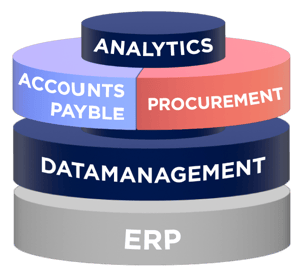1 min read
Ideal world of e-invoicing still wishful thinking
Danny Kind, Project Manager ICreative
Apr 21, 2017 1:49:12 PM
“Look, we all want an ideal world,” says Danny Kind, senior product manager at ICreative. “A world in which you no longer receive any invoices on paper from your suppliers and in which all digital invoices have the same file format to allow for automatic and error-free processing. In a way, it would be as if we all spoke the same language.” However, until this ideal world becomes a reality, recreating it is the best possible alternative.
The same language
The construction sector, the healthcare sector, the banking sector, municipal organisations: they all have their own specific methods. One might send its invoices as PDF files, another prefers to send paper invoices and a third opts for a completely different format altogether. Danny: “This calls for a platform that translates all these different languages into a single accessible format in the form of XML.” In English: an e-invoice. This is possible with the help of a Basware Network, which, it should be noted, can also be used for the invoices you send to your own clients.
The ultimate goal: optimisation
The result of using a network that converts documents (particularly invoices) in various file formats into a specific XML format is an interesting one. It leads to fast, automatic and error-free processing. Add to that a significant reduction of the use of paper and the benefits become even more obvious. The government has also discovered the advantages of this method; more and more often, they require that their suppliers use XML formats as well. Danny concludes: “We believe that the ideal world will soon be upon us – at least when it comes to e-invoicing.”
Danny Kind
Sr. Product Manager, ICreative P2P
dkind@icreative.nl
06 261 148 21
About ICreative
ICreative delivers purchase to pay and e-invoicing solutions. As one of the main Basware partners in the world, we automate procurement and invoice processing for large companies, multinationals, educational and governmental institutions. Regardless of the ERP systems in use, including SAP and Oracle, and regardless of the number of offices, countries, currencies and languages in scope.



